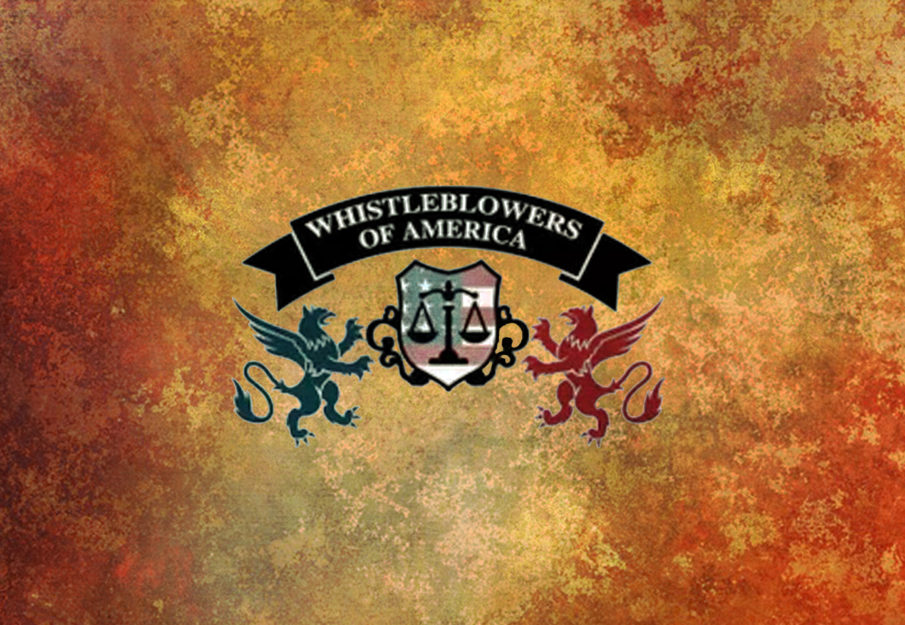Imagine that you work somewhere within the VA or the DOD. You notice that, say, your boss is continuously contracting out landscaping duties to his wife’s landscaping company, though the landscaping never seems to get done. Hundreds of thousands of VA dollars are getting siphoned into this man’s family bank account, and no one is the wiser — except for you.
Time to “blow the whistle.” Time to hold this guy accountable for contributing to the systemic issues within the VA. Seems simple enough — surely if you report him to the authorities, it will all get taken care of.
But where do you start? You get yourself a lawyer and head up to the upper echelons of the VA, just to have them reassign you to some nameless office, and they may even find reasons to reprimand and discredit you. The weeks turn to months, which turn to years before anything actually happens. The entire time, you’re alone, both profoundly bored and stressed, while navigating unknown legal waters and trying to take on an entire bureaucracy.
This is an all too familiar story among whistleblowers throughout the VA. Not every case immediately results in the whistleblower outing VA employees for stealing millions of dollars; it often ends careers, causes anxiety and depression, and even leads to substance abuse in some cases.
Jackie Garrick is the founder of the Whistleblowers of America, a non-profit that aims to serve those who have decided to come forward. She spoke to SOFREP and said that,
Significant, ongoing retaliation against VA front-line whistleblowers is rampant while assistance from the VA Office of Whistleblower Protection (OAWP) is sparse, slow, and cloaked in unreasonable secrecy. Giving quick authority to facilities to remove ‘the bad VA employee’ has proven dangerous to retaining medical personnel who were following codes of ethics and Joint Commission standards and reported wrongdoing. For example, a physician in Indiana who fought the dangerously addictive opioid prescribing practices at her facility was removed in 2017 after more than a two-year battle to save her career when the facility was given the carte blanche to strip her medical staff privileges based on an internal review of the agency’s proposed action instead of on external judgement. OAWP was unable to assist.”
Garrick has over 30 years of service to U.S. military veterans under her belt, and has even confronted the DOD herself when she personally witnessed fraud, waste and abuse. Her organization, Whistleblowers of America, is made up solely of volunteers. “It’s all about facilitating someone in their decision-making, problem solving and supporting their reliance,” Garrick said. “This can be a traumatizing experience — we allow them to ventilate and validate their experiences.”
She is currently closing in on 70 cases, most of which have come through networking, referrals and word of mouth. “The majority of our members are Department of Veterans Affairs (VA) employees or veterans who have identified waste, fraud, and abuse, medical errors, denials of care or benefits, discrimination, or harassment. For doing so, they have suffered reprisal and retaliation. They have spent endless hours with investigators, lawyers, judges, reporters, and members of Congress. They have spent thousands of dollars in family savings to reveal the truth, seek vindication, right wrongs, save lives, and obtain justice.” Their cases are not exclusive to the VA or DOD, but the vast majority comes from there, and many of the others are veteran-centric in some form.
What exactly do they offer? The road of a whistleblower, as you can see above, is a lonely one. Many have spent years fighting a bureaucracy, only to find they aren’t dashing down courtroom steps with America lifting them on their shoulders — rather, they are stuck in a job they are no longer passionate about, with justice still far out of reach. That can have serious mental ramifications. “We have to deal with what we call the ‘toxic tactics of retaliation’ — there are organized efforts being orchestrated against [whistleblowers], and that can be daunting. These are the tactics of the bully, and how to get people into a place that’s dangerous.”
Whistleblowers of America supports the men and women who have stepped forward against corruption, bolstering their mental health and giving them practical tools to fight effectively.
WoA contacts are as confidential and anonymous as the whistleblower wants to be. Although a main component of peer support is to tell your story, this can be done either publicly for those who want assistance in going to the press or Congress, or just the encouragement to write your own narrative or keeping a journal can be healing. In some cases, we have met whistleblowers in person and other just through emails, text or via social media. However, most are desperate to talk to someone, so most contacts happen over the phone. Whistleblowers are from CA to NY and from IN to FL. We’ve even had a few contacts from people in other countries. We answer every request and no call goes unanswered.”
Already have an account? Sign In
Two ways to continue to read this article.
Subscribe
$1.99
every 4 weeks
- Unlimited access to all articles
- Support independent journalism
- Ad-free reading experience
Subscribe Now
Recurring Monthly. Cancel Anytime.










COMMENTS